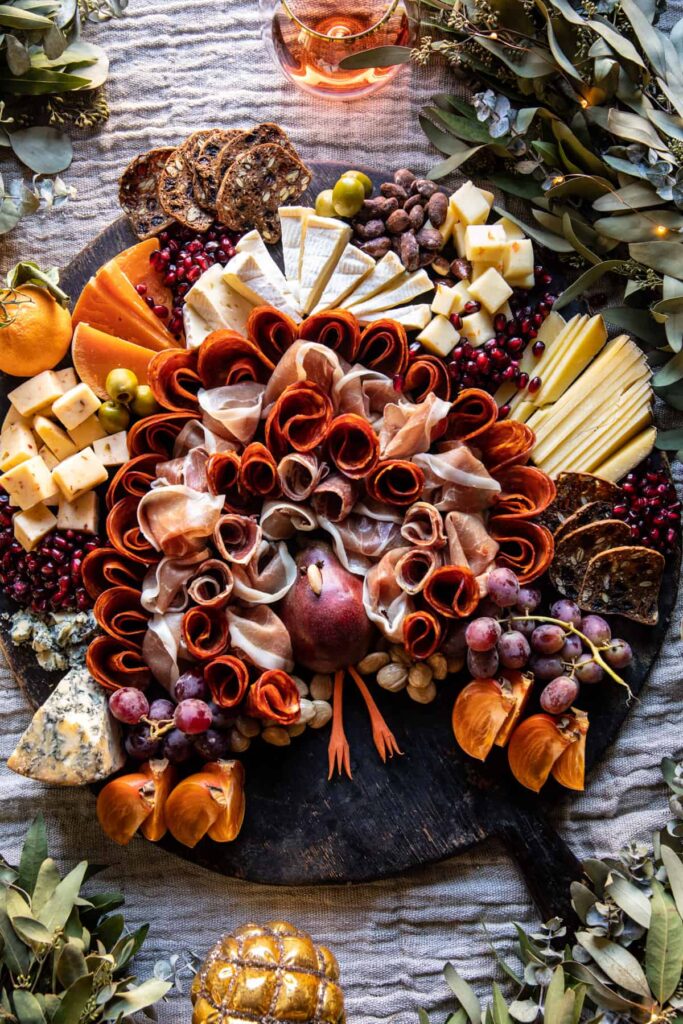
Subscribe to our newsletter
Enter your email address below and subscribe to our newsletter

By Erika Hoffman
On Facebook, I saw a post that read: Remember when charcuterie boards were called meat and cheese trays or snack trays? Or hors-d’oeuvres trays?
Below the picture and the question, a gal named Karen commented: “When I heard that word for the first time, I thought they were referring to something dirty! I think it’s one of those made-up words someone came up with to confuse us older people.”
I laughed aloud reading that, but then again, I know French, I know what “charcuterie” means, and I know that folks like to use French words to “gussy up” menus and catering offerings. Even the word “horse d’oeuvres” is just a fancy French word for appetizer. And as if that is not enough, now, at wedding receptions and the like, they serve us little “pre-hors d’oeuvres,” which they call “amuse bouches.”
French words sound sophisticated. Doesn’t “charcuterie” sound better than a tray of pig products? And isn’t hors-d’oeuvres more sophisticated than its translation “outside of the works” and “amuse bouche” sounds better than “mouth pleaser?”
It’s always this way with our language. Our common English words have Germanic roots, so “Mann” becomes “man,” “Haus” becomes “house,” and “Mutter” becomes “mother.” On the other hand, our more sophisticated words usually have origins in the Romantic languages derived from Latin roots. So, the French word for house, “Maison,” turns into our “mansion.” And their word for “little” becomes our “petite,” and their word ‘big” becomes our word “grand.” “Valise” sounds better than suitcase. And who wouldn’t pay big bucks for an “armoire.” Not so much for a wooden clothes closet!
Of course, the “fancy like Applebee’s on date night” sometimes backfires when you use foreign words. The French word for shower is “douche.” And the word for “ladies” is “Dames.” And overweight in French becomes “grosse.” A “cul-de-sac” literally is the bottom of the bag. A “rendezvous” sounds romantic, but it can be an appointment in French, like a dental exam!
Nonetheless, Mardi Gras sounds more festive than Fat Tuesday, and I’d rather swallow “escargots” than snails; “foie gras” is much more appealing than “liver.” Remember, if you see “Cheval” as the plat de jour, avoid it. (You don’t want to eat Trigger!) “Potpourri” we’d pay good money for, but not so much if it’s just a jar of dead flowers.
There’s a reason the Beatles interspersed French in their love songs like Mon Cher Amour. Do you recall Patti LaBelle’s Lady Marmalade’s famous lyric: “Voulez-vous coucher avec moi ce soir?” It rhymes and seems more romantic than its English translation: Shack up with me tonight.
Being complimented as “the crème de la crème” sounds a lot posher than being designated as Top Dog or King of the Hill. Be careful, too, when you guess the meaning of French words. You might deduce that the verb “crapoter” has to do with the “toilette,” but you’d be wrong. “Crapoter” means to smoke without inhaling.
So, when you hear “charcuterie board,” don’t translate—because if you do, you’ll realize it’s just a plate of sliced pork from the pig butcher’s shop. It’s like sausage making. No one wants to see that done. Just eat that delicious Polish hot dog from Costco smothered with mustard and forget how it’s made. The same goes for thin slices of salami, prosciutto, and bologna. Without translation, enjoy the charcuterie board this Thanksgiving. Bon Appetit!
I enjoyed very much Ms. Hoffmans mix of breezy humor with a graceful bit of education for the reader in her piece “Charcuterie? Ooh-la-la!” Charcuterie plates have definitely become de rigeur for gatherings, and most of them have more whimsical and stylish compositions than the old meat and cheese plates! Who knew that rolling the meat could make it taste so much more scrumptious?
Absolutely delightful! Impossible to read with raising a smile and a hearty laugh! Good for the digestion, too.
Only Erika Hoffman could fling word meanings with such astuteness. What fun! Yes, foie gras does sound better than liver! And charcuterie board is nicer than sliced pork from the pig butcher’s shop!
I had no idea the ‘board’ was considered an assortment of pork. I hope Americans are allowed to add a few more meats from other sources? A great language lesson I will remember.
What perfect timing for this hilarious piece with Thanksgiving, the biggest food holiday, right around the corner. Well done and so much fun!
Erika once again managed to teach her readers something new while at the same time putting smiles on our faces. Many thanks!
Ms. Hoffman always has an amazing way of teaching me something new through her wonderful writings. She also manages to bring a smile and laugh each time. Thank you for sharing.